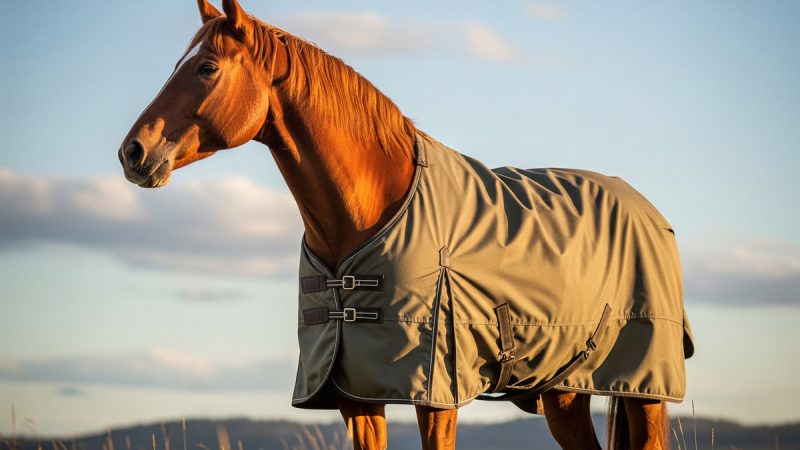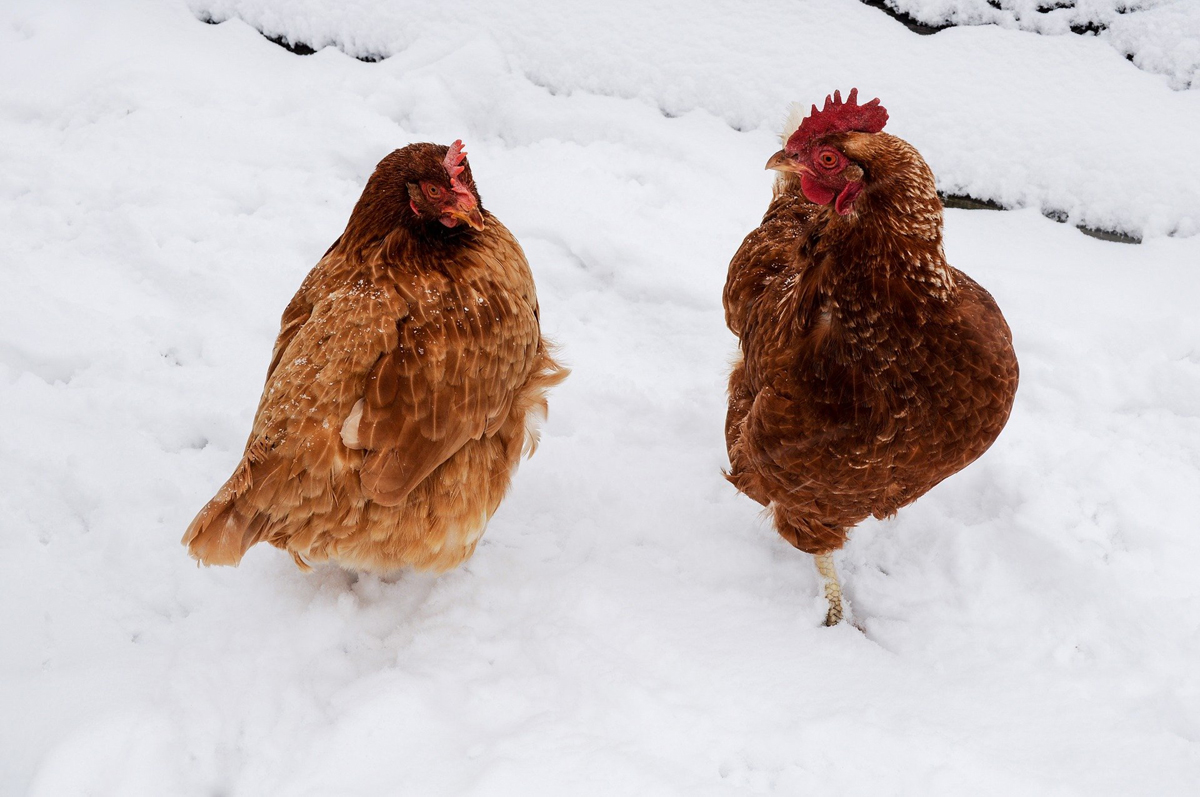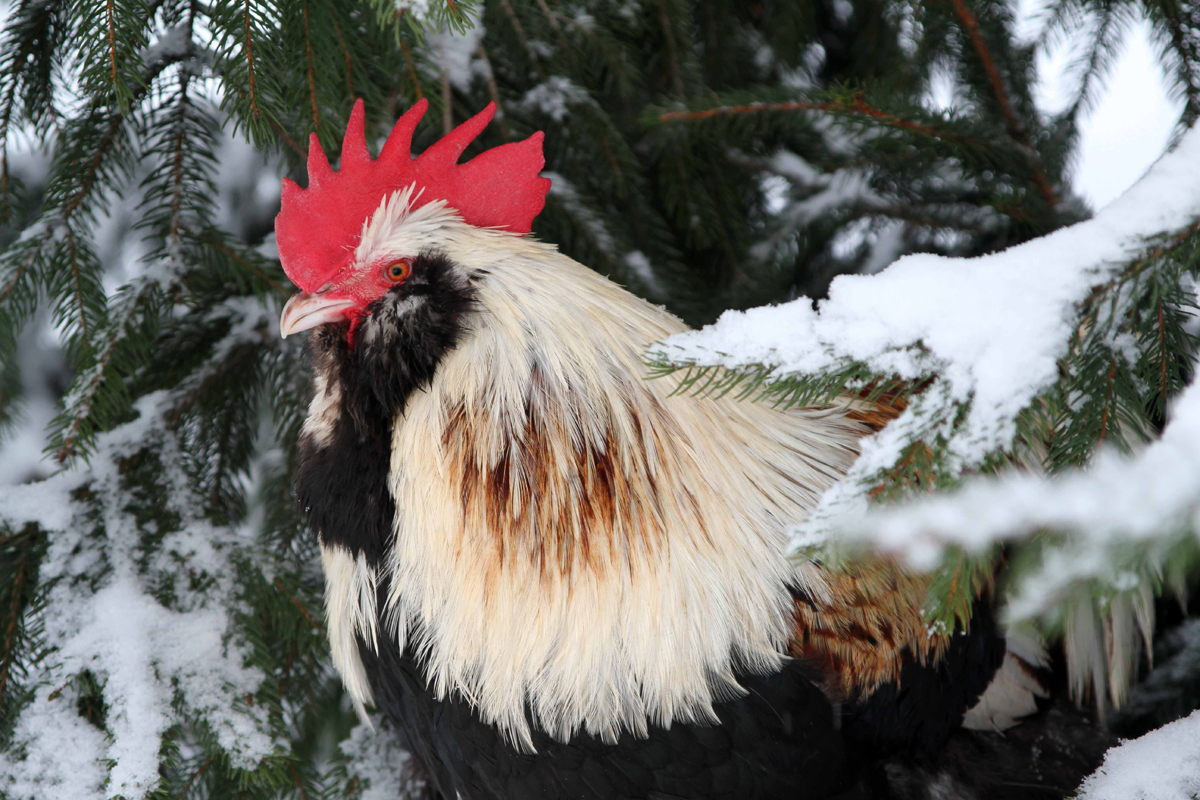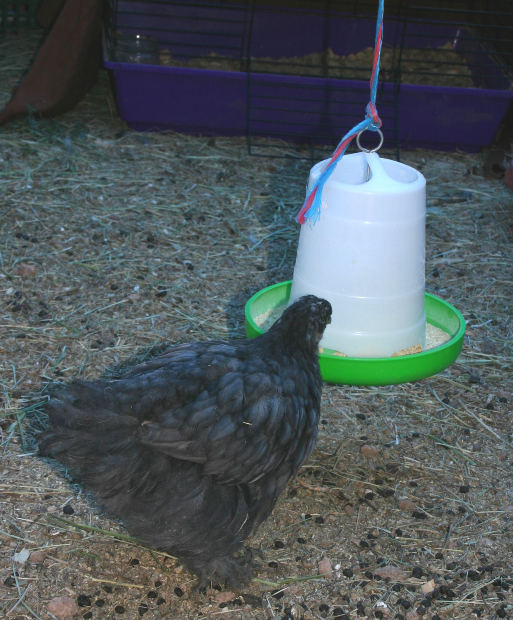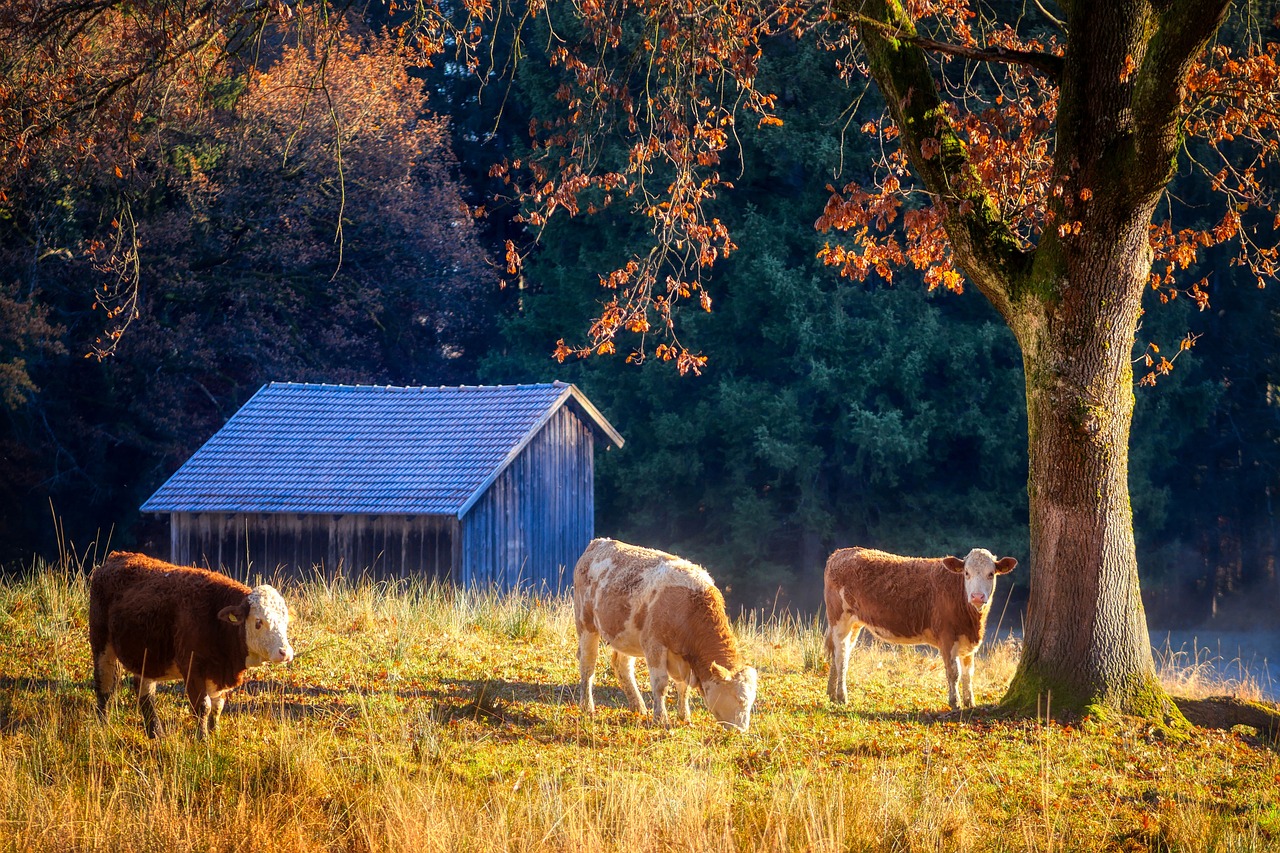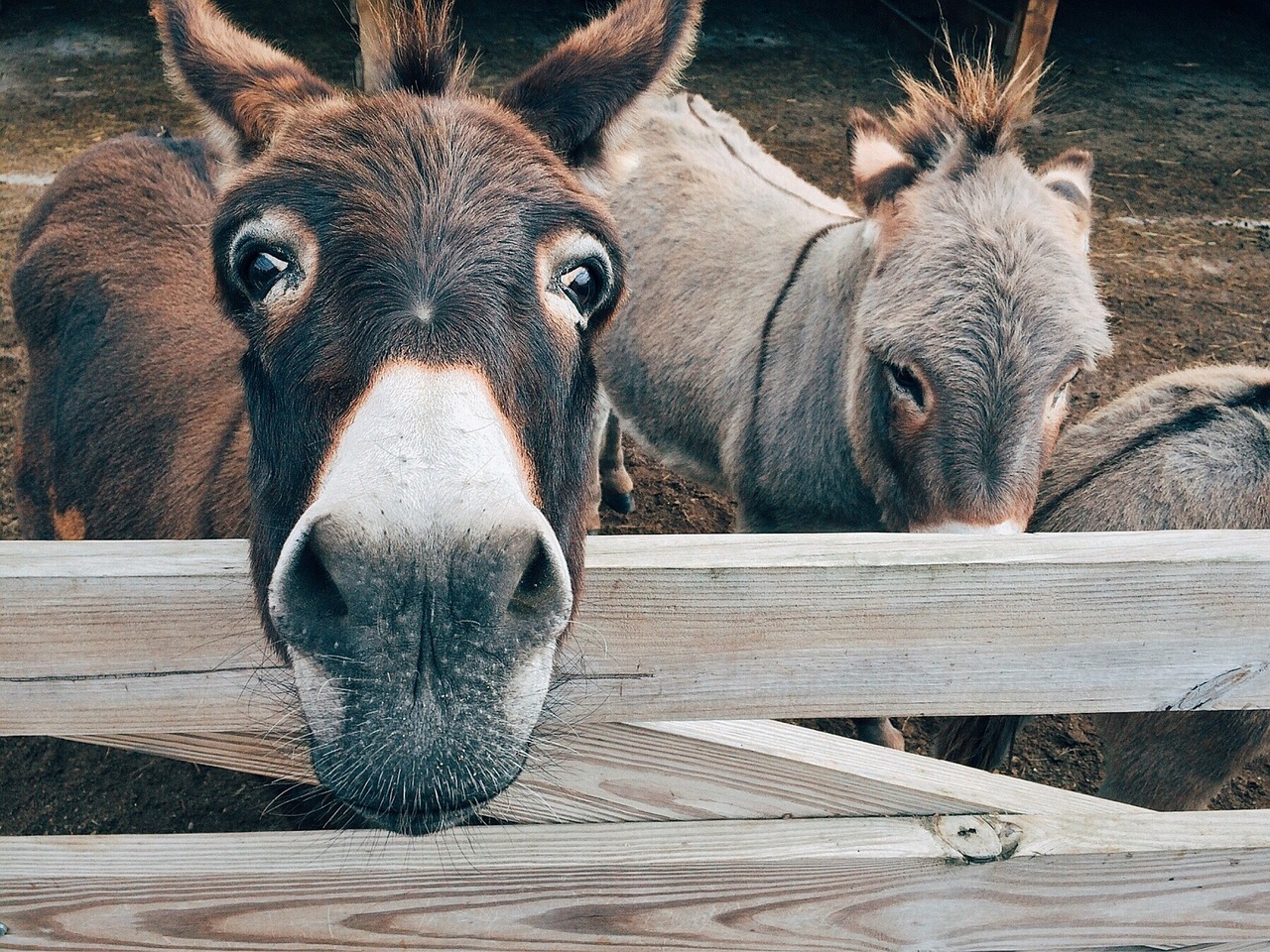Raising Chickens in The Winter
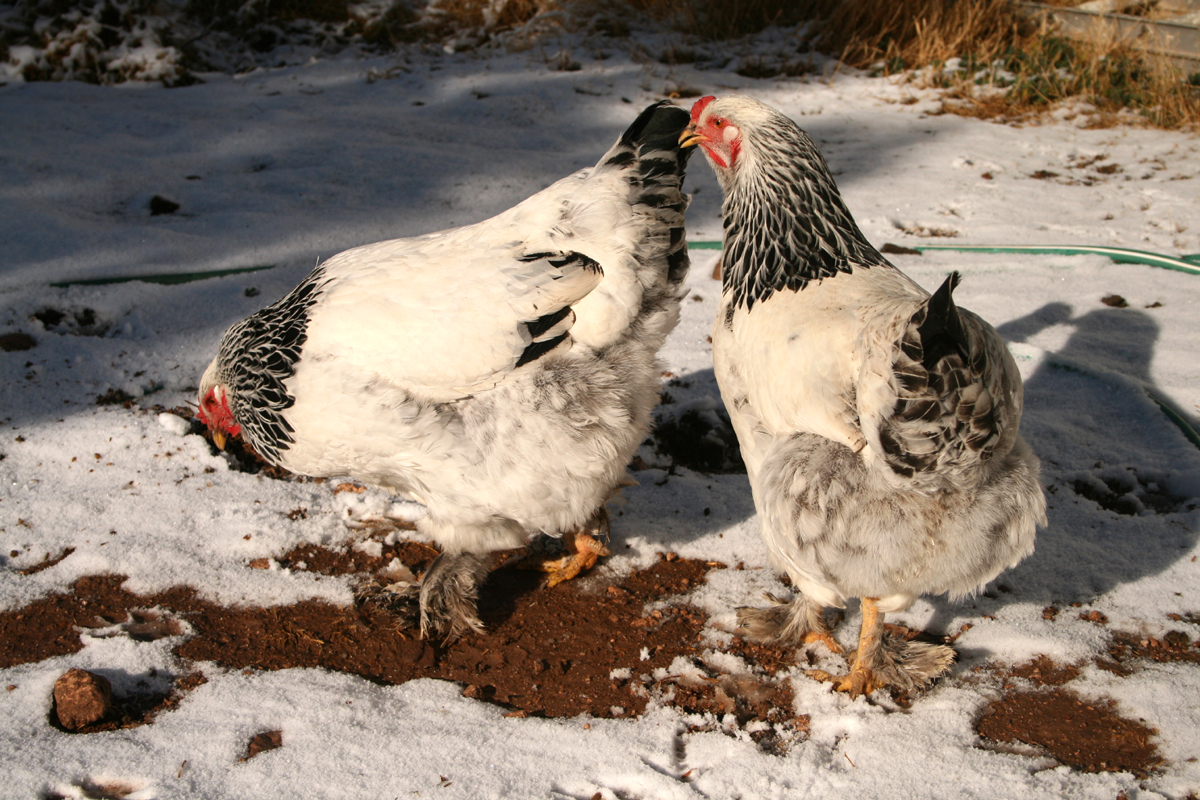
It seems that every year the cold weather becomes a minor source of anxiety for me…nothing specific really, just the usual problems dealing with the cold and the difficulties it creates. Because I raise chickens year round, I have to take extra care during the winter months to ensure their survival, and a mostly uninterrupted supply of eggs. Raising chickens in the winter can be a challenge. Here are some tips that can help you keep your flock vibrant and healthy despite the cold, inclement weather.
Winter Tip #1:
Raising chickens in the winter requires the proper housing for your flock. The coop, or wherever you keep your chickens, must be ventilated, draft free and insulated if possible. My coop has ventilation on three sides that I can adjust depending on the time of year. During the cold months I close the north facing vent and keep the remaining ones open just far enough to keep a constant exchange of air flowing. This reduces excess moisture inside the coop created from breathing and waste. Chickens tolerate cold weather very well, but cold and wet…not so well. If possible, insulate the coop. Insulation works to retain heat and reduce moisture condensation. Remove wet bedding often…it can cause moisture related problems in the best of conditions. If possible, cover part of the run or an area near the coop where your chickens can take shelter from the elements.
Winter Tip #2:
“To heat the coop or not to heat the coop? That is the question!” Chickens are hearty animals and they tolerate cold weather incredibly well. While heating the coop is not mandatory there may be times when you should consider the option. If your flock is small they may not generate enough body heat to keep warm even if they huddle together. Consider heating the coop if temperatures remain well below the freezing point for extended periods of time. Are the eggs you collect frozen? A small heat source under the nesting boxes will serve to keep them from freezing and provide warmth in the coop. A south facing window doesn’t hurt either…this provides plenty of radiant heat during the day.
Winter Tip #3:
Feed and water. Refresh frozen waterers often to ensure an uninterrupted supply or keep your water from freezing by providing a heated fount. There are numerous types of heated waterers available that only turn on when the temperature drops below freezing…32°F (0°C). Maintaining a fresh water supply should be a priority no matter the time of year. A little extra feed now and then is a good idea when the cold sets in. Chickens eat more during the winter months to maintain their metabolism and feed is the fuel that generates internal body heat. I give my chickens a complete feed in the morning and cracked grains (scratch) in the evening before they retire to the coop. This way they have a full crop that keeps their digestive systems working and generating heat all night long.
Winter Tip #4:
Protecting Combs and Wattles. Chickens generally enjoy being outside in most weather conditions, even when it’s cold. Winter weather does present a problem unique to chickens…that is freezing or frostbitten combs and wattles. Identifying frostbitten areas is relatively easy…they usually appear as black or very dark spots at the tips of the combs and wattles. The spots (the damaged areas) eventually fall off as the combs and wattles heal. The best way that I know of to prevent frostbite is to coat the combs and wattles in petroleum jelly. This helps keep them from drying out and may reduce frostbite.
Winter Tip #5:
Eggs. Egg production slows considerably during the winter months in part as a result of the reduced amount of sunlight that hits the earth. Adding 2 to 3 hours of artificial light inside the coop each day will stimulate the hens to increase egg production. A lamp with a protected cover will do the trick. But don’t over do it…too much light can result in cranky chickens. Be sure to remove the eggs daily so they don’t freeze.
Follow these tips and you’ll have no trouble raising chickens in the winter months.
The Author:
Martin Ashway raises chickens in his backyard just outside of Chicago, Illinois.
Photo. Xandert
Source: EA


